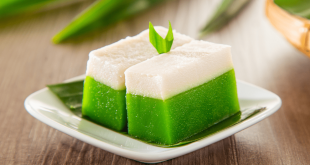Introduction to Halal food and its significance in Malaysia
Welcome to the flavorful world of Halal food in Malaysia, where culinary traditions intertwine with religious practices to create a unique dining experience. In this blog post, we delve into the origins and significance of the Halal food act in Malaysia, exploring how it has shaped not only the country’s food industry but also its cultural identity. So grab a seat at the virtual table as we uncover the secrets behind Malaysia’s thriving Halal food scene!
History and origins of the Halal food act in Malaysia
Let’s delve into the intriguing history and origins of the Halal food act in Malaysia. The concept of Halal, meaning permissible in Arabic, has deep roots in Islamic teachings. With Islam being the predominant religion in Malaysia, the significance of consuming Halal food is paramount to adhering to religious beliefs.
The Malaysian government recognized this importance and took steps to regulate the production and distribution of Halal food through legislation. The establishment of the Halal Food Act was a pivotal moment that aimed to ensure Muslims have access to food that complies with Islamic dietary laws.
This act not only set standards for Halal certification but also outlined procedures for monitoring compliance within the industry. It sought to provide assurance to consumers regarding the authenticity and quality of Halal products available in the market.
Understanding how this act came into existence sheds light on its cultural and religious significance within Malaysian society.
The Halal certification process and its requirements
When it comes to obtaining a Halal certification in Malaysia, the process is rigorous and thorough. Companies seeking certification must adhere to strict guidelines set by JAKIM (Department of Islamic Development Malaysia), the governing body responsible for Halal certification.
To start, businesses must ensure that all ingredients used in their products are sourced from Halal-certified suppliers. This includes everything from food items to packaging materials. Additionally, manufacturing processes must be free from any non-Halal contamination or contact.
Furthermore, companies looking to get certified undergo regular inspections and audits to verify compliance with Halal standards. These inspections cover various aspects such as storage, transportation, and production facilities.
The Halal certification process plays a crucial role in assuring consumers that the products they purchase meet Islamic dietary requirements.
Controversies surrounding the Halal food act
The Halal food act in Malaysia has not been without its fair share of controversies. One major point of contention revolves around the strict regulations imposed on food establishments seeking Halal certification. Critics argue that these requirements may be too stringent, causing undue burden on businesses.
Another issue raised is the potential for discrimination against non-Muslims in the food industry. Some fear that the emphasis on Halal certification may exclude certain groups from participating in the market or lead to unequal treatment.
Furthermore, there have been debates about the transparency and integrity of the Halal certification process. Questions have been raised regarding how rigorously standards are enforced and whether corruption or bribery could influence outcomes.
While the intention behind ensuring Halal compliance is clear – to cater to Muslim consumers – navigating through these controversies remains a challenge for policymakers and stakeholders alike.
Impact of the Halal food act on Malaysia’s economy
The Halal food act in Malaysia has had a significant impact on the country’s economy. With a large Muslim population and being a global hub for Halal products, the regulations have boosted consumer confidence both locally and internationally.
The certification process ensures that businesses adhere to strict guidelines, leading to increased export opportunities and foreign investment. This has created jobs and stimulated economic growth in various sectors related to Halal products such as agriculture, manufacturing, and tourism.
Malaysia’s commitment to Halal standards has also positioned it as a leader in the global market for Islamic goods and services. The country continues to attract Muslim consumers worldwide seeking quality-assured products that comply with their religious beliefs.
The Halal food act has not only strengthened Malaysia’s economy but has also established it as a key player in the growing Halal industry on an international scale.
How other countries are adapting to the concept of Halal food
The concept of Halal food has transcended borders and is gaining recognition worldwide. Many countries are adapting to the growing demand for Halal products, not only to cater to Muslim populations but also due to the rising awareness of quality assurance in food production.
In non-Muslim majority countries, the Halal industry is seen as a lucrative market opportunity. From Europe to Asia and beyond, businesses are seeking Halal certification to tap into this expanding consumer base. This shift reflects a global trend towards inclusivity and diversity in the food sector.
Governments are recognizing the economic potential of Halal products and implementing regulations to standardize certification processes. This move ensures transparency in labeling and builds trust among consumers, regardless of their religious beliefs.
As more countries embrace the Halal food industry, collaborations between nations for mutual recognition of certifications are on the rise. This harmonization promotes international trade while upholding standards that meet Islamic dietary requirements.
The future holds promising growth for the global Halal market as cross-cultural exchanges pave the way for a more interconnected culinary landscape.
Conclusion: The future of the Halal food industry in Malaysia and beyond
As the Halal food industry in Malaysia continues to thrive, with a robust regulatory framework and increasing demand both locally and globally, its future looks promising. The Halal food act has not only ensured compliance with Islamic dietary laws but has also boosted consumer confidence, leading to economic growth in various sectors.
Looking ahead, Malaysia is set to maintain its position as a global leader in the Halal industry, expanding its reach beyond just food products into cosmetics, pharmaceuticals, and more. With technological advancements streamlining the certification process and increasing awareness about the benefits of consuming Halal products, the industry is poised for even further growth.
Moreover, other countries are beginning to recognize the potential of catering to Muslim consumers worldwide by adopting similar standards for their own Halal industries. This presents significant opportunities for collaboration and trade partnerships that can further elevate Malaysia’s status as a key player in the global Halal market.
In essence, as more countries embrace the principles of providing Halal products and services, there lies a bright future for the industry not just in Malaysia but across borders. The combination of tradition, innovation, and growing consumer preferences indicates that the journey of the Halal food industry is far from over – it is evolving towards greater success on an international scale.
 Latest Updates
Latest Updates


